I wouldn't put much faith in the 1 star reviews on this site. This place SAVED MY LIFE!!!!! It is definitely not easy by any means, you will be given tools and lessons that can bring you on a path to recovery unlike any recovery center out there. If you are struggling with a ...
About Wasatch Recovery Treatment Center
This is a residential rehab that also has day treatment and intensive outpatient programs. A lot of clients start with their detox program. After detox they move into the residential program and then step down to Wasatch’s other programs as they become more stable in their recovery. This is an awesome advantage because it means you can stay with the same rehab as your recovery progresses. They also have a location in Sandy, Utah where they have outpatient treatment and a sober living home.
This rehab works toward your overall health and wellness instead of only treating your addiction. They combine evidence based strategies like group therapy and counseling with experiential therapies like fitness and outdoor activities. They also use medication to help with opioid addiction and alcohol addiction which can help lower your cravings.
One thing I especially noticed about this rehab is the personal touch they offer. This is part of why so many clients rave about them. They see who you are as a person and work with you to create a treatment plan that really works for you.
Facility Overview
Latest Reviews
Rehab Score
Gallery
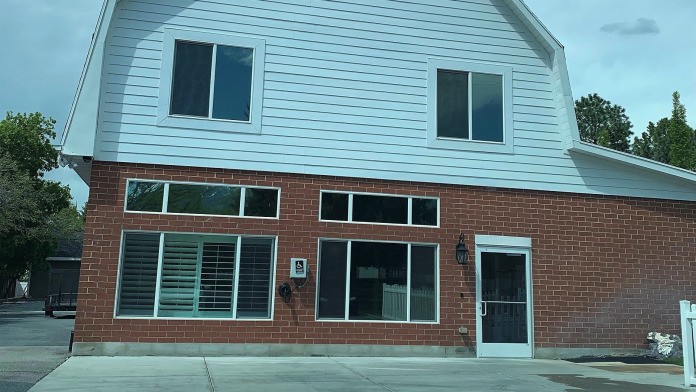


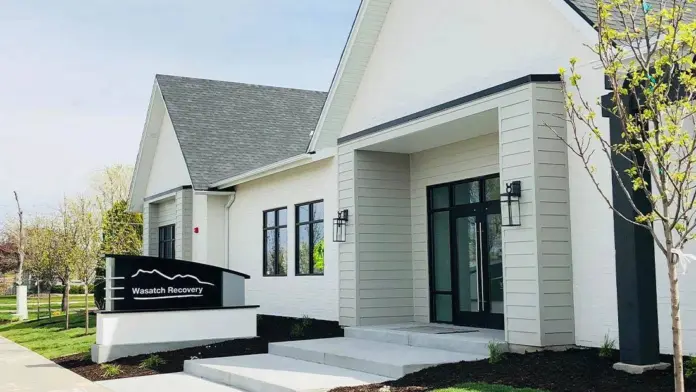
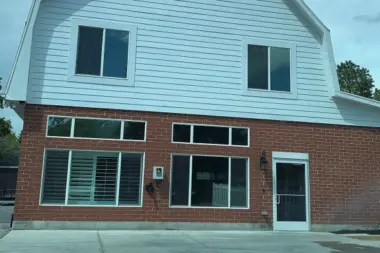


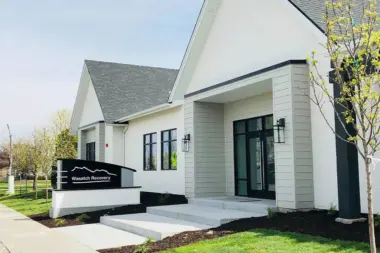
Other Forms of Payment
Private insurance refers to any kind of healthcare coverage that isn't from the state or federal government. This includes individual and family plans offered by an employer or purchased from the Insurance Marketplace. Every plan will have different requirements and out of pocket costs so be sure to get the full details before you start treatment.
Self-pay involves paying for treatment out of your own pocket. You can use savings or credit, get a personal loan, or receive help from family and friends to fund your treatment. If you don't have insurance or your insurance plan doesn't cover a specific program, self-pay can help ensure you still get the care you need.
Financial aid can take many forms. Centers may have grants or scholarships available to clients who meet eligibility requirements. Programs that receive SAMHSA grants may have financial aid available for those who need treatment as well. Grants and scholarships can help you pai for treatment without having to repay.
Private insurance refers to any kind of healthcare coverage that isn't from the state or federal government. This includes individual and family plans offered by an employer or purchased from the Insurance Marketplace. Every plan will have different requirements and out of pocket costs so be sure to get the full details before you start treatment.
Addiction Treatments
Levels of Care
Outpatient Programs (OP) are for those seeking mental rehab or drug rehab, but who also stay at home every night. The main difference between outpatient treatment (OP) and intensive outpatient treatment (IOP) lies in the amount of hours the patient spends at the facility. Most of the time an outpatient program is designed for someone who has completed an inpatient stay and is looking to continue their growth in recovery. Outpatient is not meant to be the starting point, it is commonly referred to as aftercare.
Residential treatment programs are those that offer housing and meals in addition to substance abuse treatment. Rehab facilities that offer residential treatment allow patients to focus solely on recovery, in an environment totally separate from their lives. Some rehab centers specialize in short-term residential treatment (a few days to a week or two), while others solely provide treatment on a long-term basis (several weeks to months). Some offer both, and tailor treatment to the patient's individual requirements.
Intensive Outpatient Programs (IOP) are for those who want or need a very structured treatment program but who also wish to live at home and continue with certain responsibilities (such as work or school). IOP substance abuse treatment programs vary in duration and intensity, and certain outpatient rehab centers will offer individualized treatment programs.
Clients receiving services in a rehab aftercare program have generally been stable and sober for a period of weeks and months and no longer require high intensity treatment. Many have stepped down from inpatient rehab to outpatient treatment. Others have been discharged from formal treatment but need support in maintaining their sobriety. Clients typically work with their case manager and care team to develop a long-term care plan that aligns with their unique needs and goals.
The most common addiction recovery program is known as “The 12-Step Program”. Twelve-Step programs are well-known for use in recovery from addictive or dysfunctional behaviors. The first 12-Step program began with Alcoholics Anonymous (AA) in the 1930s. The 12-Step approach has since grown to be the most widely used approach in dealing with not only alcoholism, but also drug abuse and various other addictive or dysfunctional behaviors. Though there are pros and cons to every therapy approach, there is a reason why the 12-Step Program is so popular. Wasatch Recovery strategically uses the 12-Step Program within addiction-specific customized treatment program.
At certain points in the recovery process, it's important to have support available 24/7. 24-hour clinical care offers a safe environment in which to recover from drug or alcohol addiction in peace, knowing medical detox and other treatment will happen with professionals on hand.
Medical detox is the safest way to remove addictive substances from your body under the care of medical professionals. In an inpatient environment, you'll be monitored 24/7 by doctors, nurses, and clinical experts, who will help keep you as safe and comfortable as possible and administer medication if needed to treat any withdrawal symptoms. The process may take up to a week or longer depending on your needs, and is often at least partially covered by insurance.
Each sober living home in Utah is a residence, not a treatment center. This setting does not provide clinical or medical treatment, but many residents attend recovery groups or outpatient rehab while staying at the home. The setting, also called a halfway house, offers a balance between structure and accountability and living in the "real world," to help people transition from treatment to everyday life.
Treatments
The goal of treatment for alcoholism is abstinence. Those with poor social support, poor motivation, or psychiatric disorders tend to relapse within a few years of treatment. For these people, success is measured by longer periods of abstinence, reduced use of alcohol, better health, and improved social functioning. Recovery and Maintenance are usually based on 12 step programs and AA meetings.
When you enter a drug rehab in Utah, the process usually involves four stages: treatment initiation, early abstinence, maintaining abstinence, and advanced recovery. Treatment methods can rely on medications, counseling, or both, in either an outpatient or inpatient setting.
Many of those suffering from addiction also suffer from mental or emotional illnesses like schizophrenia, bipolar disorder, depression, or anxiety disorders. Rehab and other substance abuse facilities treating those with a dual diagnosis or co-occurring disorder administer psychiatric treatment to address the person's mental health issue in addition to drug and alcohol rehabilitation.
Opioid rehabs specialize in supporting those recovering from opioid addiction. They treat those suffering from addiction to illegal opioids like heroin, as well as prescription drugs like oxycodone. These centers typically combine both physical as well as mental and emotional support to help stop addiction. Physical support often includes medical detox and subsequent medical support (including medication), and mental support includes in-depth therapy to address the underlying causes of addiction.
Substance rehabs focus on helping individuals recover from substance abuse, including alcohol and drug addiction (both illegal and prescription drugs). They often include the opportunity to engage in both individual as well as group therapy.
Programs
Adult rehab programs include therapies tailored to each client's specific needs, goals, and recovery progress. They are tailored to the specific challenges adult clients may face, including family and work pressures and commitments. From inpatient and residential treatment to various levels of outpatient services, there are many options available. Some facilities also help adults work through co-occurring conditions, like anxiety, that can accompany addiction.
Young adulthood can be an exciting, yet difficult, time of transition. Individuals in their late teens to mid-20s face unique stressors related to school, jobs, families, and social circles, which can lead to a rise in substance use. Rehab centers with dedicated young adult programs will include activities and amenities that cater to this age group, with an emphasis on specialized counseling, peer socialization, and ongoing aftercare.
Clinical Services
Cognitive Behavioral Therapy (CBT) is what makes Wasatch Recovery the best place to seek lasting recovery and healing. This type of therapy is typically a one-on-one approach that includes a therapist designing a recovery plan for the patient or their loved one. Their custom recovery plan is determined by what the therapist uses to accompany the therapy sessions that the patient will participate in. These sessions become a time for the therapist to understand the patient or their loved one to better assist in understanding addiction and how to overcome it. CBT does not have a distinct definition because of the diverse therapeutic techniques used. Some of the therapies that fall under CBT are: Rational Behavior Therapy, Rational Emotive Therapy, Rational Living Therapy, Cognitive Therapy, and Dialectic Behavioral Therapy. All of these therapies are based on the cognitive models and trends in relationship to emotional response.
During dialectical behavior therapy in Utah, you'll work on developing four main skills. Interpersonal effectiveness helps you manage your relationships. Mindfulness keeps you present in the current moment rather than worry or regret. Distress tolerance helps you accept emotions. Emotional regulation gives you the tools you need to successfully manage intense emotions.
The majority of each client’s structured treatment time is spent in daily group therapy and psycho-educational classes. Groups are limited to a maximum of 16 clients and are conducted by a licensed clinician. These groups allow clients to address specific issues related to their substance abuse and its consequences. In group therapy, clients learn to elicit social support, develop interpersonal relationships, and give and receive feedback from their peers. Wasatch Recovery counselors use group techniques from a variety of sources including Rational-Emotive Behavioral Therapy, cognitive restructuring and re-framing, and psycho-education.
Individual counseling will happen as per assessment needs. All residents will receive Individual treatment while at Wasatch Recovery. This treatment gives the residents time to address individual issues in a more confidential atmosphere where very personal issues can be addressed in safety.
Motivational Interviewing (MI) is a clinical approach to helping people with substance abuse issues and other conditions shift behavior in positive ways. It is more goal-oriented than traditional psychotherapy, as MI counselors directly attempt to get clients to consider making behavioral change (rather than wait for them to come to conclusions themselves). Its primary purpose is to resolve ambivalence and help clients become able to make healthy choices freely.
Trauma therapy addresses traumatic incidents from a client's past that are likely affecting their present-day experience. Trauma is often one of the primary triggers and potential causes of addiction, and can stem from child sexual abuse, domestic violence, having a parent with a mental illness, losing one or both parents at a young age, teenage or adult sexual assault, or any number of other factors. The purpose of trauma therapy is to allow a patient to process trauma and move through and past it, with the help of trained and compassionate mental health professionals.
Couples at any stage of their relationship may benefit from couples therapy in Utah. It is designed to keep relationships on the right path by teaching both partners healthy forms of communication and conflict resolution.
Family therapists work with all members of the family unit to understand the impact that addiction has had on the family collectively and individually. Together they develop strategies to help their loved one recover. The therapist facilitates open discussions between family members to help build resilience and improve interactions. Ultimately, this supports their loved one's path to sobriety.
Life skills training helps you handle the daily obligations of work, school, and family. It rebuilds your self awareness and self confidence so you can face these challenges with healthy coping strategies rather than succumb to relapse.
Active addiction can quickly lead to malnutrition. This makes recovery even harder because your body doesn't have the nutrients it needs to function. During nutrition therapy, you'll learn about the effects of substance use on the body, how food can help your mental health, and how to maintain a nutritious diet.
Recreational therapy helps you in your addiction recovery program by improving your overall well being. Activities can include sports, music, and nature excursions that give you positive experiences, reduce your cravings, and offer the opportunity to reduce your stress. These aid in your addiction recovery.
The goal of experiential therapy is to help you work through trauma or intense feelings by interacting with your environment and others. In a safe environment, you are able to resolve conflicts or challenges from the past. Techniques include adventure courses, equine therapy, martial arts, and music.
Amenities
-
Gym
-
Yoga Studio
-
Residential Setting
-
Private Rooms
-
Recreation Room
Staff & Accreditations
Staff
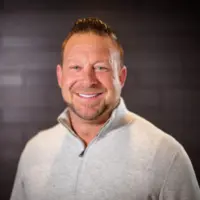
Mark Richards
Owner & CEO
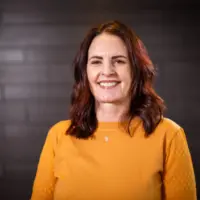
Whitney Williams
Director of Finance
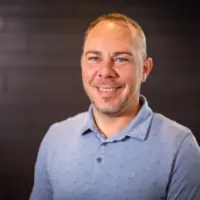
Corey Markisich
Executive Director
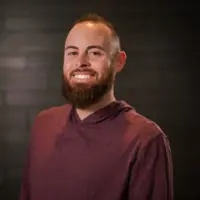
Kirk Laplante
Executive Director of Operations

Nadya Wayment
Medical Director
Accreditations

The Joint Commission, formerly known as JCAHO, is a nonprofit organization that accredits rehab organizations and programs. Founded in 1951, the Joint Commision's mission is to improve the quality of patient care and demonstrating the quality of patient care.
Joint Commission Accreditation: Yes
Contact Information
8420 Wasatch Blvd
Cottonwood Heights, UT 84121